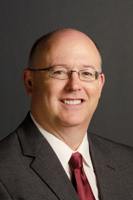

“In a like manner, if you are taking a leap of faith trusting in falsehood,
your faith will do you no good no matter how strong your convictions may be”
(Gregory Koukl, The Story of Reality).
If we consider a Christian worldview like it is a jigsaw puzzle, we need to make sure we have the right pieces in the right places to get the picture God wants us to have and understand. Forcing pieces from other jigsaw puzzles or worldviews corrupts what God desires for us.
Recently, I read a book that did an excellent job connecting the pieces of a Christian worldview while helping discard those pieces I had inadvertently picked up from American culture. There are so many useful thoughts, I struggled choosing which to highlight for you.
The book would be an excellent gift for those bound for the liberal lions’ dens of colleges and universities. It would also be an excellent gift to yourself for growing your own trust and faith in Christ. My love for God grew because of this book.
It will strengthen your understanding of your faith and the way you can share the good news so some may be saved. While it isn’t meant to be an evangelism book, I can’t imagine any evangelist who wouldn’t benefit from reading it.
“One of Francis Schaeffer’s most memorable sayings was that Christianity does not start with ‘Jesus saves you from your sins.’ It starts with ‘In the beginning, God created the heavens and the earth.’” That is the opening sentence of the “Foreword” in The Story of Reality. This misunderstanding of the interconnecting pieces of the Christian worldview “…illustrates a major reason the message of Christianity no longer makes sense to many people today.”
Greg Koukl’s The Story of Reality: How the World Began, How It Ends, and Everything in Between covers a huge swath of ground as the title indicates but remains easy to read and understand. I gained insight upon insight that challenged me, yet made perfect sense according to what the Bible teaches.
Koukl describes the Christian worldview as “the Story” in his work to distinguish it from other worldviews and their stories.
The world we live in today with its various stories is shown in contrast to “the Story” which started in Genesis and continues until Christ’s return. Other stories often copy part of the structure of this great drama with a beginning, an end, a struggle between good and evil, a climax, and a final resolution.
The author divides the components which make up the Christian worldview into five sections with multiple chapters per section. Those components which differentiate "the Story" from other stories are God, man, Jesus, the cross, and the resurrection. How they interact and are explained within the Bible touches our spiritual and physical worlds to answer some of the deepest questions we have.
In the section on God, Koukl writes:
Did you ever wonder how to sum up the main theme of the Bible accurately in a single, simple concept? It’s right there in the first line: “In the beginning, God created the heavens and the earth.” Put simply, the Story starts with a Sovereign who creates a domain he benevolently rules over. There is a King and his “dom,” so to speak. There is kingdom.
This is what the Story is all about. The main theme is not love or redemption or forgiveness or even relationship. Those are all important parts of the Story, to be sure. They serve the theme in important ways, but they are not the main point of the Story. The idea that God owns everything and has proper authority to rule over everything he has made is the main point.
Here is another way of looking at it: The universe is managed by some One, not some thing. We are not abandoned to the fates or to the blind and brutal forces of the natural world. Instead, we have a powerful King carefully watching over us and who is there for us.
When a sinner returns to God, “We do not just return to a sovereign, but, like the prodigal son, we come home to the protective care of a father.”
Like a loving father, Koukl guides the reader through precise thinking, usually by asking questions and then sharing answers, so better conclusions can be drawn related to worldviews. As each worldview is a story, he reminds us that the attractiveness or likability of a story doesn’t mean it is true and can answer the questions we really have.
Each worldview is a quest to answer those questions we have about life (see a related blog here). Each worldview follows a structure – creation, fall, redemption, restoration – in an attempt to answer why we sense something is terribly wrong with the world and why we know something is terribly wrong with us.
Even before the author delves into the players of “the Story,” he deals with the two most common objections: “Matter-ism” (the origin of God and miracles relative to the material universe), and “Mind-ism” (New Age thought, Hindu religions).
For instance, it should seem obvious that the Christian worldview believes God made the world and we are his subjects. However, the “Mind-ism” worldview, often associated with New Age thought and books like The Secret, often carries a contradictory belief which Koukl states as “Either self is nothing, or self is everything (God).” Mind-ism cannot handle the problems of evil, especially as a deceased proponent, Deepak Chopra, used to say, “All is as it should be.” If so, then why do we know there are wrongs in the world?
The Story of Reality touches on those who believe using the mind is the wrong answer to spiritual questions and that we should instead trust our feelings. Ironically, “Mind-ism” does this quite often, but we may also see this behavior in those who hold the Christian worldview. Usually, the admonition to trust your feelings is stated right after ideas are offered which should be inspected. Koukl writes:
The “trust your feelings” advice denies you the tools necessary to separate smart from foolish, wise from silly, safe from perilous. This is not good counsel since in life there are lots of lemons, and many of them are spiritually deadly. Never trust anyone who tells you to rely on experience over careful thinking. “Look before you leap” is sage advice. It applies especially to leaps of faith. Feelings are important. They make life beautiful. But careful thinking – reason – makes life safe.
For some, nothing requires more examination than the two miracles which define “the Story.” Without these two miracles the Christian worldview would not hold together. The first miracle in history no one saw – a trade between God the Father and God the Son where there is what is called the “Marvelous Exchange” as seen in 2 Corinthians 5:21, 1 Peter 3:18, and Ephesians 1:7. The second miracle is the resurrection of Jesus from the dead.
“Four Facts,” a chapter within the section titled Resurrection, presents four facts (surprise!) even secular historians agree on. Those four facts (some use more – see here for instance) are based on an exhaustive analysis surveying 1400 academic sources published since 1975.
If our task is to uncover reality, then Koukl says we should ask, “Do you want the right answers – that is, do you want to get clear on what actually happened that weekend in ancient Palestine – or do you merely want the right kind of answers, answers that fit your own agenda, regardless of evidence to the contrary?”
This book arms you with a connected understanding which prepares you for battle against the “…rulers, against the authorities, against the cosmic powers over this present darkness, against the spiritual forces of evil in heavenly places.” It is through ideas that humankind takes action, so the battle for the mind affects the state of your soul and the movement of this nation and others toward that time when Christ returns.
Spiritual battles almost always break out into our physical world, so if you have ever thought the world was going to hell in a handbasket, this book will help you help yourself and others stay out of that handbasket.

